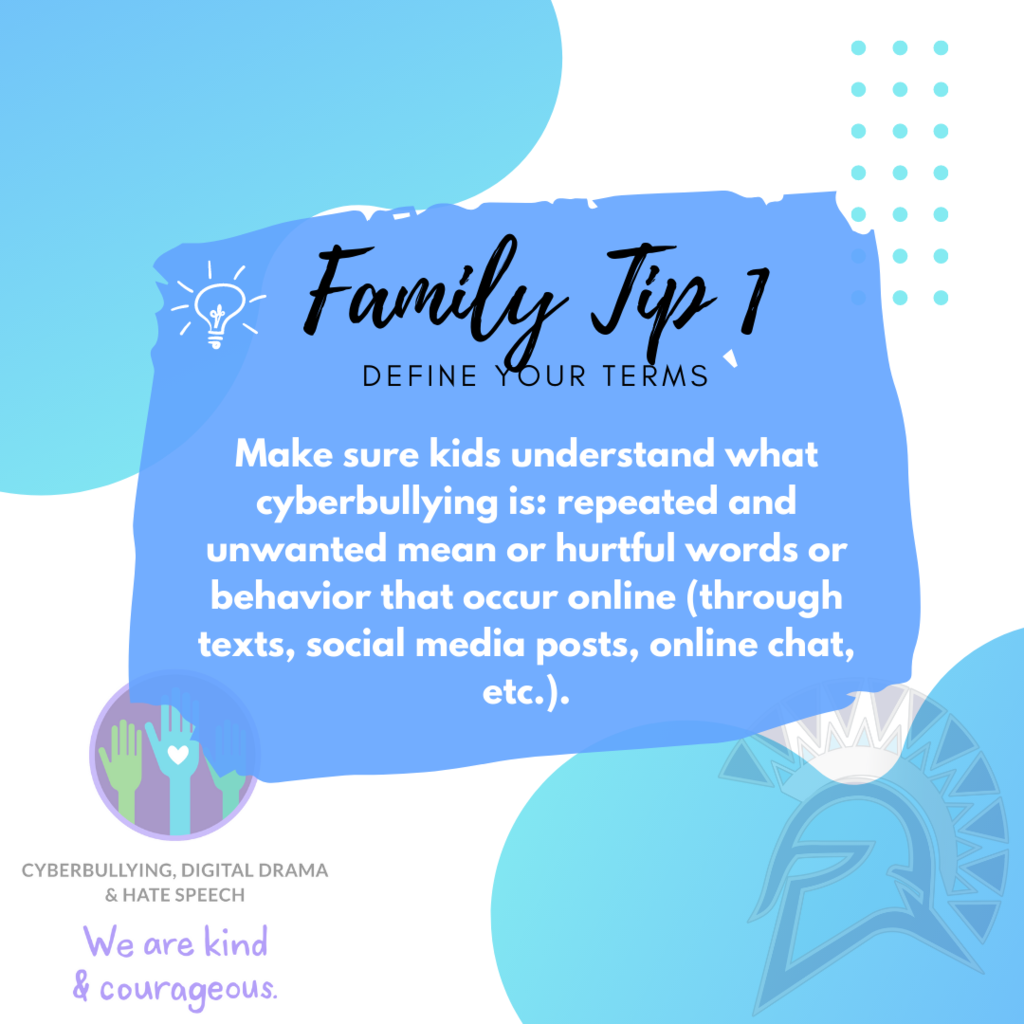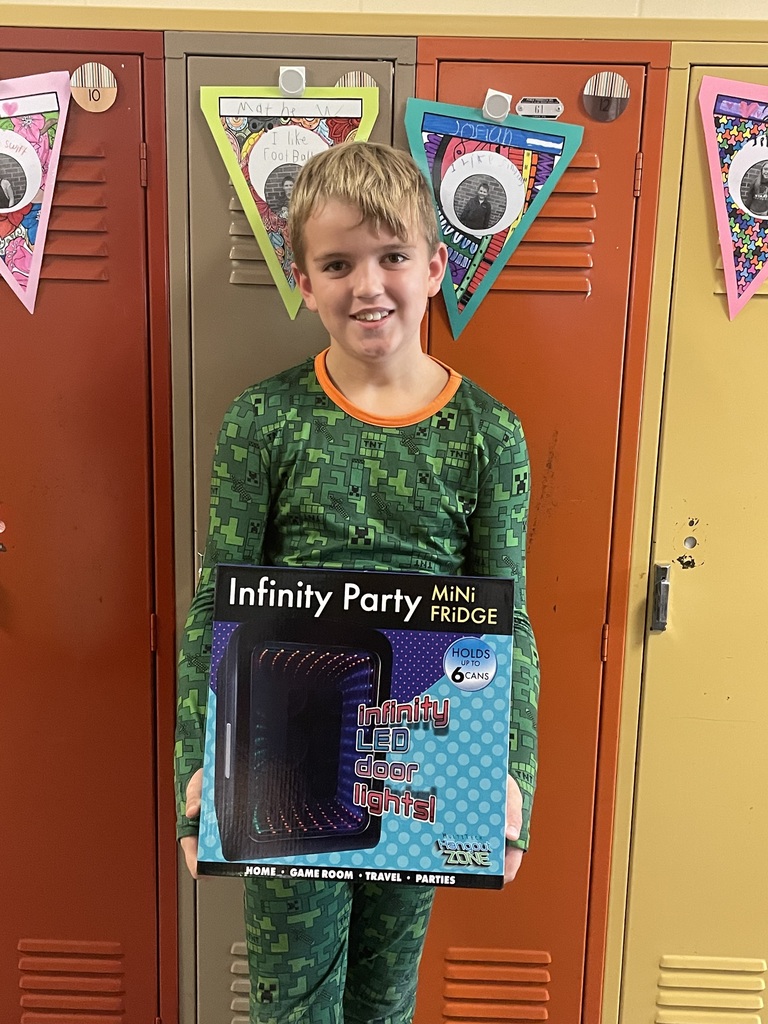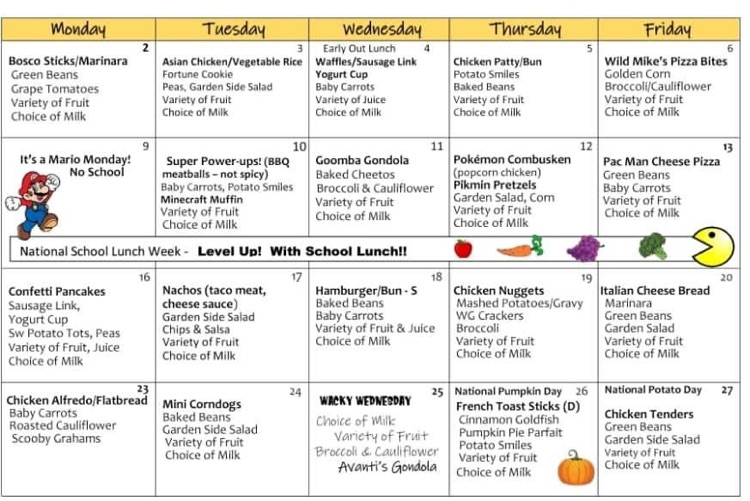#DigCit Family Tip 1: Define your terms.
Make sure kids understand what cyberbullying is: repeated and unwanted mean or hurtful words or behavior that occur online (through texts, social media posts, online chat, etc.).

5th Graders at Olympia South had an amazing day at the Museum of Science and Industry thanks to the Wood's Foundation!





Parent Concerns: Cyberbullying.
Once kids go online, their chances of finding cyberbullies, haters, and trolls is, sadly, quite high. Find age-specific guidelines, videos, and articles to help with tough conversations -- whether your kid is a bully or is being bullied. Explore answers to all your cyberbullying questions, age-appropriate advice, school resources, and more from parents and experts.
https://www.commonsensemedia.org/cyberbullying

Most kids will encounter mean behavior at some point in their digital lives. For some kids, this experience is a blip that's easily forgotten, while for others it can have deep, long-lasting effects. For parents, the key is staying involved in kids' lives -- both online and off -- so they can step in and offer help if necessary. With guidance from parents and educators, kids can learn how to dodge the drama and stand up for others.
Throughout October we will be sharing 6 different tips for families to encourage best behavior when approaching the topics of Cyberbullying, Digital Drama, and Hate Speech with your families.
1. Define your terms
2. Check in about online life
3. Role-play
4. Encourage upstanding
5. Take breaks
6. Review worst-case steps

A growing trend is children using generative A.I. tools such at character.ai to connect with something in a way that they feel uncomfortable doing with another human. The areas below are areas that we hope you discuss with your children at home, and are concepts that may be brought up in Olympia classrooms throughout the year.
- The role that AI will play in the areas of creative expression, human relationships, and mental well-being.
- The impacts that AI might have on their identity formation and sense of self.
- How AI companions might influence their expectations of genuine and complicated humans.
Read the full article from Common Sense Education here:
https://www.olympia.org/article/1271448

The 2nd session is October 17th 6-7 PM via Zoom. These sessons are free but you need to sign up for the zoom link.

Congratulation to Allison Litwiller for winning the second Super Sized Rice Krispy Treat!

Olympia South has a new support dog thanks to Mrs.Duggins! Meet Ella 🐶❣️


Hurry, there's still time ⏰ to join the excitement! 🎉 Register now, enter contact information of friends and family, and get a shot at winning BIG with a $100 Amazon Gift card! 🌟 Empower kids, be awesome, and make a difference! Don't miss out! #NextLevelAdventures #WinAmazonGiftCard #EmpowerKids #MakeADifference

October is Principal Appreciation Month. We are so thankful for our Elementary Principals and the support they provide students, staff, and families.

Digital citizenship grows in importance each year (A.I. anyone?). Starting today we begin our annual focus of six core areas of digital citizenship, providing resources and support for our Oly families. More details on this outreach can be found here: bit.ly/OlyDigCitOverview

Oly South students and staff want to wish everyone a happy homecoming! We also want to send out a special thanks to the OSE PTO for our blue and white popcorn treat today!!

Congratulations to Kayleigh Vest for winning our second Mini Fridge!

Congratulations to Hunter Robinson for winning the Super Sized Rice Krispy Treat!

Families, we have partnered with the Ronald McDonald House in Springfield. We will save pop tabs all year. Last May these students made a delivery of collected tabs.

Congratulations to Isaiah Lessen for winning our first Mini Fridge prize! Remember you can still complete your 10+ messages to earn prizes tomorrow.

Did you miss last night's mental health session - Your Child's Anxiety ? Check out the replay: LINK: https://cookcenter.info/Sep26OSDReplay

Mobile food truck in McLean at noon today!

October Elementary Menu

Families we need your help to hit our goal! Register and enter at least 20 contacts on your personal donation page for a chance to win this COOL fridge stuffed with mystery prizes! #itspossiblewithpop #beawesome #empowerkids #stepitup #makeadifference

